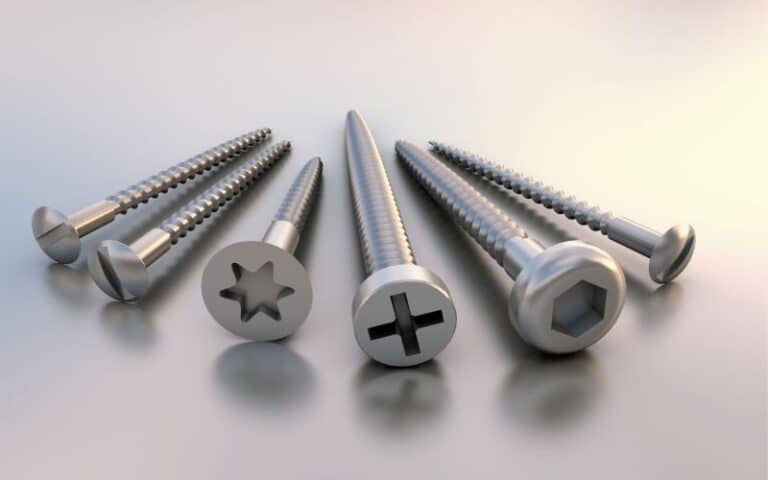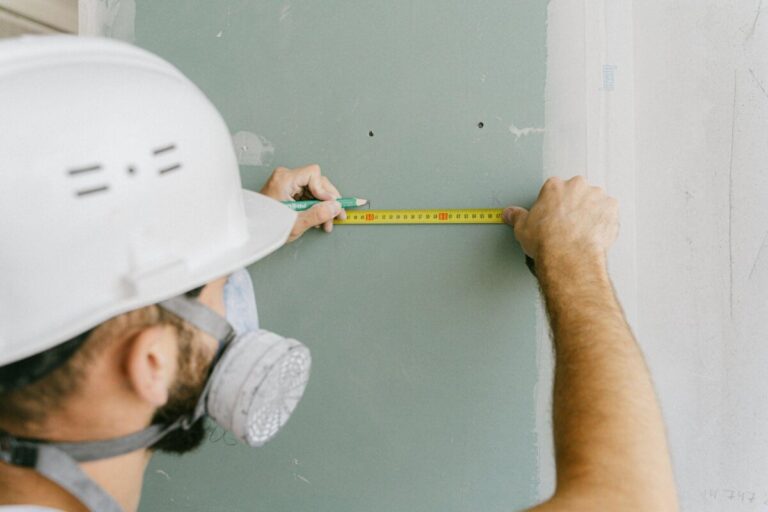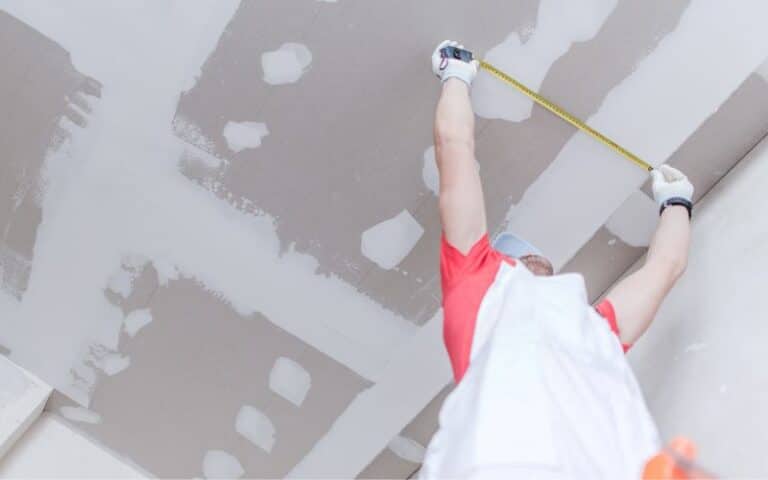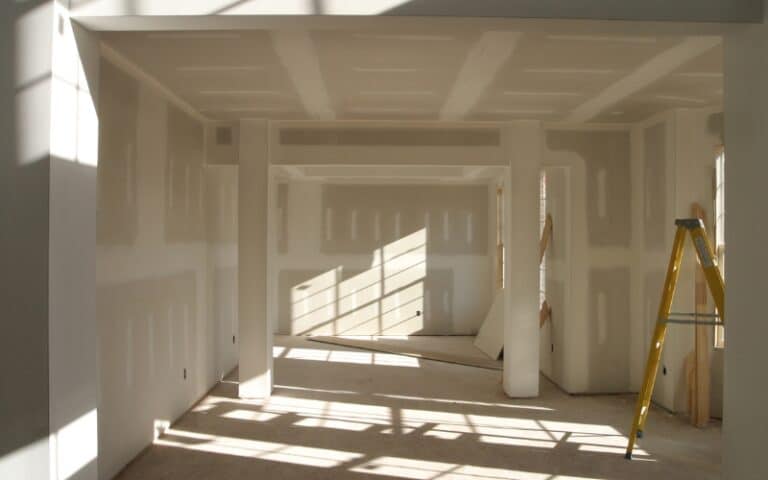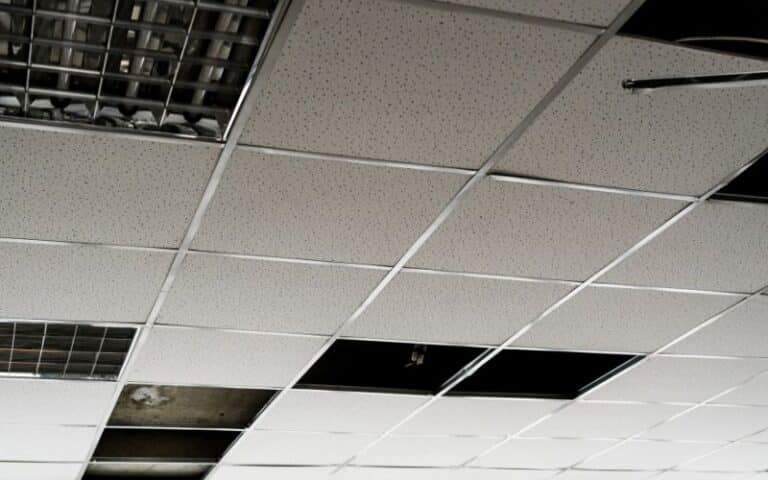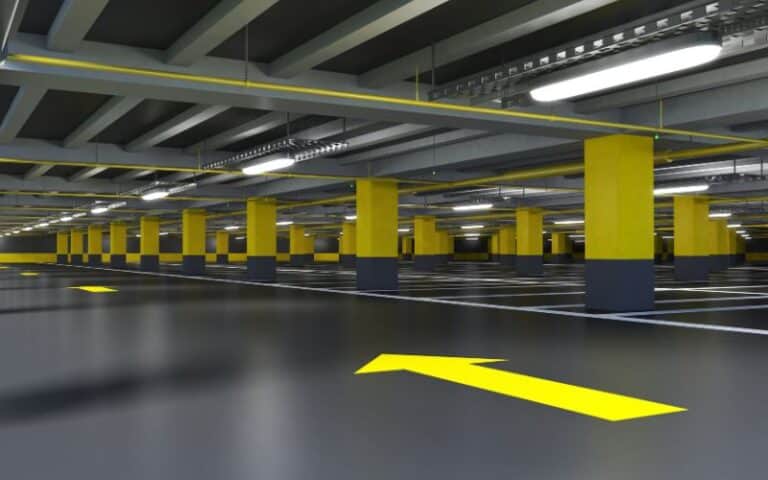Your shower is one of the most important places in your home, and this area usually faces a lot of moisture which prompts the growth of mold and other microorganisms.
Hence, it’s only fitting to purchase the best construction material for your shower to prevent the growth of mold.
And that’s where cement board and drywall come in, as they are excellent construction materials with unique properties.
Nonetheless, let’s critically analyze your shower’s cement board and drywall.
It’s best to use cement board for your shower as it is not susceptible to mold growth despite the constant exposure to moisture. However, drywall is not as reliable as cement board as it is prone to moisture, providing the best mold growth environment. Nonetheless, you can settle for the material of your choice.
This article will break down every detail you need to know about cement boards and drywall.
Then, in the end, you can choose the best material for your shower.
Ready for a Drywall Quiz?
What Are the Differences Between Cement Board and Drywall for Showers?
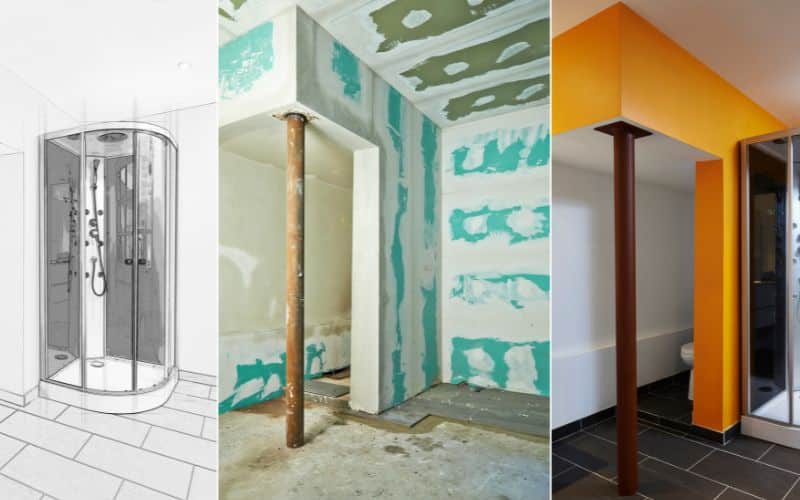
Many homeowners become perplexed when choosing the best material for their showers.
Admittedly, choosing the best material for your shower is challenging as many factors come into play.
In this case, many homeowners tend to consider cement boards and drywall without knowing the differences. So what exactly are these differences? Let’s find out!
Cement boards are waterproof and offer better protection from mold growth than drywall.
Your shower is one place in your home that’s highly susceptible to mold growth due to constant exposure to moisture. Hence, using drywall for your shower may not be the best option.
Although drywall has moisture-resistant properties, using it in your showers is not advisable as it will absorb moisture and facilitate mold growth.
Notwithstanding, you can use drywall for the walls and ceiling in your bathroom. However, not all drywall can serve this purpose, especially regular drywall.
You can settle for green or purple drywall if you want to use drywall for your bathroom walls and ceiling.
These drywall have high moisture-resistant properties and can last for a long time. Drywall can be a great option for your bathroom if you live alone and don’t expose it to constant moisture.
Furthermore, if you are going to use drywall in your bathroom, it’s best to wash it regularly and leave it to dry to avoid mold growth.
On the other hand, cement boards are excellent for your shower as they prevent mold growth and keep it dry. However, you can use cement boards for your bathroom walls and floors.
Unfortunately, installment will cost you a fortune as cement boards are pretty expensive. Plus, cement boards are more challenging to install than drywall.
The installation is difficult, and cement boards are hard to cut to the appropriate size.
Nonetheless, you can accomplish this task by planning your budget properly and hiring a professional.
On the other hand, you can strike a balance between cement boards and drywall by using drywall for your bathroom walls and cement boards for your showers.
This way, you can save money and create a structure that’ll last long.
With that established, let’s summarize the differences between cement boards and drywall in the table below.
| Cement Board | Drywall |
|---|---|
| It’s more expensive. | It’s cheap. |
| It’s waterproof. | It’s moisture-resistant. |
| It’s difficult to install. | It’s easy to install. |
| It’s difficult to cut. | It’s easy to cut. |
When Can You Use Cement Boards?
Cement boards are popular in the construction sector and are slowly surpassing sheetrock as many contractors utilize them for bathroom floors.
These boards are finely manufactured with the best materials for maximum efficiency during construction projects.
But the big question that always piques the interest of many homeowners is when exactly you can use cement boards.
Although cement boards are not as versatile as drywall, they come in handy in many projects.
Without further ado, let’s look at some places you can utilize cement boards.
#1. Bathroom/Shower
Your bathroom and shower are places that are constantly exposed to moisture. Hence, you need a material that’s strong enough to ward off any mold or microbial growth.
And that’s where cement boards chip in, as they are waterproof and prevent mold growth.
It’s not advisable to settle for a material that’s just moisture resistant as it will still absorb moisture.
Therefore, it’s best to purchase cement boards of high quality that’ll last for a long time.
Planning properly when considering materials for your bathroom or shower is crucial, as your health is paramount.
Hence, it’s wise to consult an expert to assist you in installing only high-quality cement boards in your bathroom/shower.
Nonetheless, you must adopt hygienic measures to keep your bathroom/shower clean and dry at all times.
You can do this by washing your bathroom regularly with antiseptic and other cleaning materials. This way, there’ll be no chance of mold growth.
#2. Kitchen
Your kitchen is another area that’s constantly exposed to moisture which provides the perfect condition for mold growth.
Sometimes, you enter your kitchen only to discover mold growth on the walls. This destroys the interior decór of your kitchen and makes it look dilapidated.
If you don’t discover mold growth on time, it might spread to your floors, especially if constructed with plywood.
You can use cement boards on the kitchen walls and countertop to prevent mold growth.
Although cement boards may look easy to install, that’s not the case.
They are quite difficult to install, and you might sustain injuries if you attempt to install them without assistance.
Therefore, it’s advisable to consult a professional to assist you in installing the cement boards on your kitchen walls and countertops.
In addition, you can install the cement boards on your kitchen floor. However, it’s not wise to install wood on your kitchen floor as it is not waterproof and highly susceptible to mold growth.
Although some wood floors are moisture-resistant, settling for cement boards is best. Cement boards offer better protection from mold or microbial growth despite the costs.
Lastly, cleaning your kitchen daily is best, as bacteria and other microbial growth can rapidly grow in a dirty environment.
You can do this by washing your plates on time and mopping the kitchen with clean water and detergent. This way, you can easily eradicate any growth of mold or bacteria.
Is Cement Board Enough for Shower Walls?
Cement boards contain unique features that suit areas like your bathroom/shower, kitchen countertop, and walls.
Hence, many homeowners wonder if cement boards are enough for their shower walls.
The good news is that cement boards are of excellent quality and are suitable for your shower walls.
Although not all cement boards are waterproof, you can purchase a waterproof coating for them.
But most cement boards are waterproof, especially the ones for use in the bathroom/shower.
Admittedly, cement boards are expensive and may cost you a lot for purchase and installment.
But the costs are worth it as they will last longer and prevent microbial growth. Also, you can use cement boards for your bathroom/shower floor.
The floor of your shower is one area that’s constantly exposed to moisture. Hence, it’s best to use cement boards for your floor as they seal any possible microbial growth space.
It’s not pleasant to wake up one morning and discover an enormous spread of mold or microbial growth.
It makes your bathroom unclean and unfit for use. Hence, it’s only fitting that you purchase and install cement boards of high quality.
It’s not wise to compromise your health by purchasing low-quality cement boards for your walls and floor. This can lead to devastating effects as you might begin to notice certain changes.
First, cracks might develop on the walls and floor, releasing mold and other microorganisms.
You might begin to perceive an unpleasant smell from your bathroom. Hence, planning your budget properly before settling for cement boards is best.
If your budget can not cover your walls and floor, it’s best to settle for your walls or floor. Then, settle for a good substitute that’ll last long and prevent mold or microbial growth.
What Is the Best Cement Board to Use in a Shower?
Fiber cement board is the best to use in a shower as they are moisture resistant and prevent the growth of mold/microorganisms.
You can also use a glass mat gypsum board, which contains the same features as a fiber cement board. You can utilize these boards for your shower walls.
However, you can’t use them for your shower floors as they can absorb moisture and lead to mold growth.
Nonetheless, you can purchase a waterproofing coating to cover the fiber cement board and use them for your shower floor.
On the other hand, you can purchase fiber cement boards that are specifically waterproof for your shower floor.
This way, you can avoid constant repairs and replacement of your shower floor.

